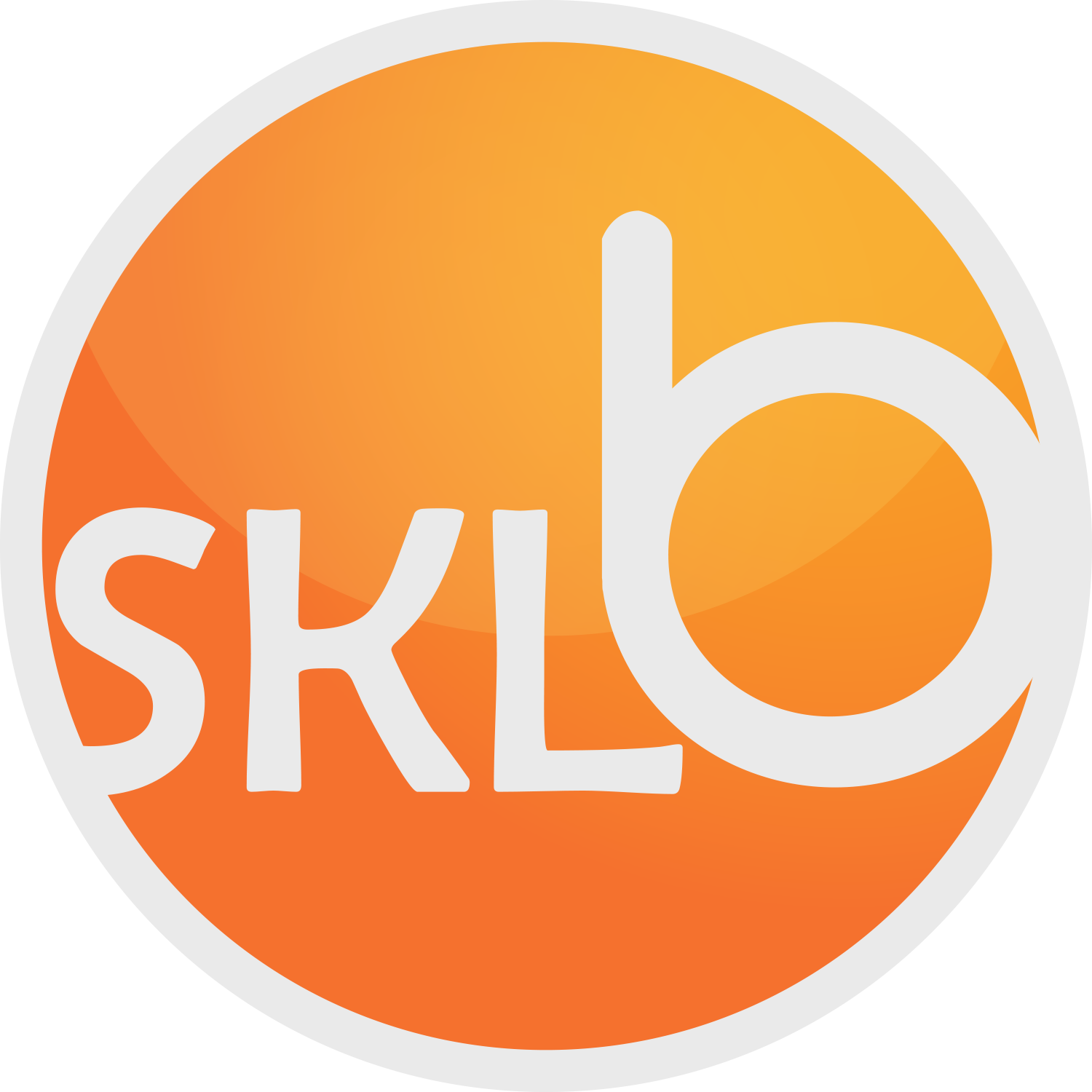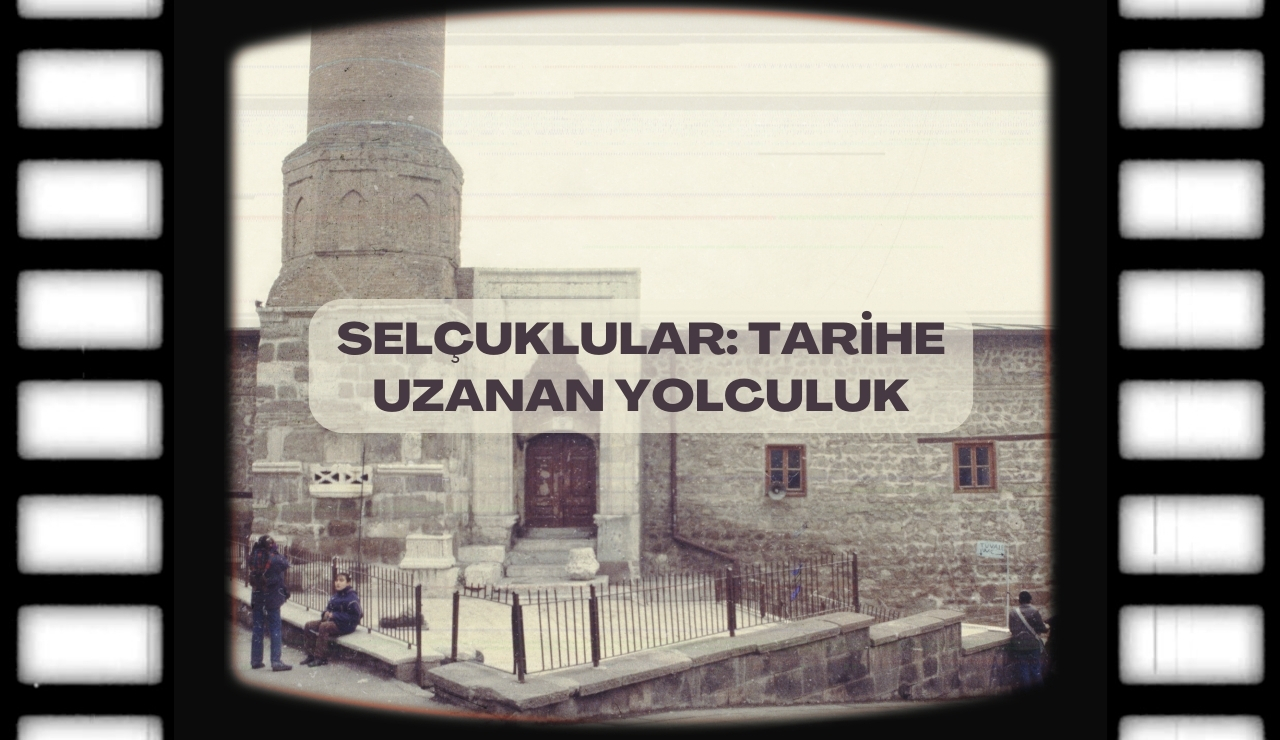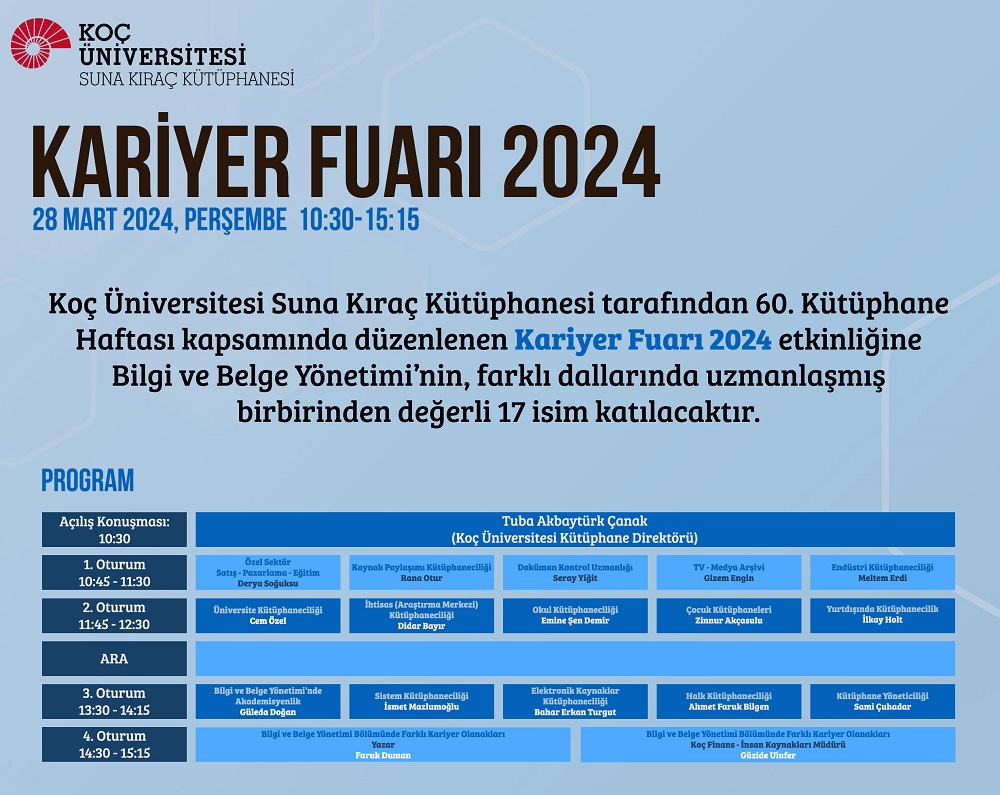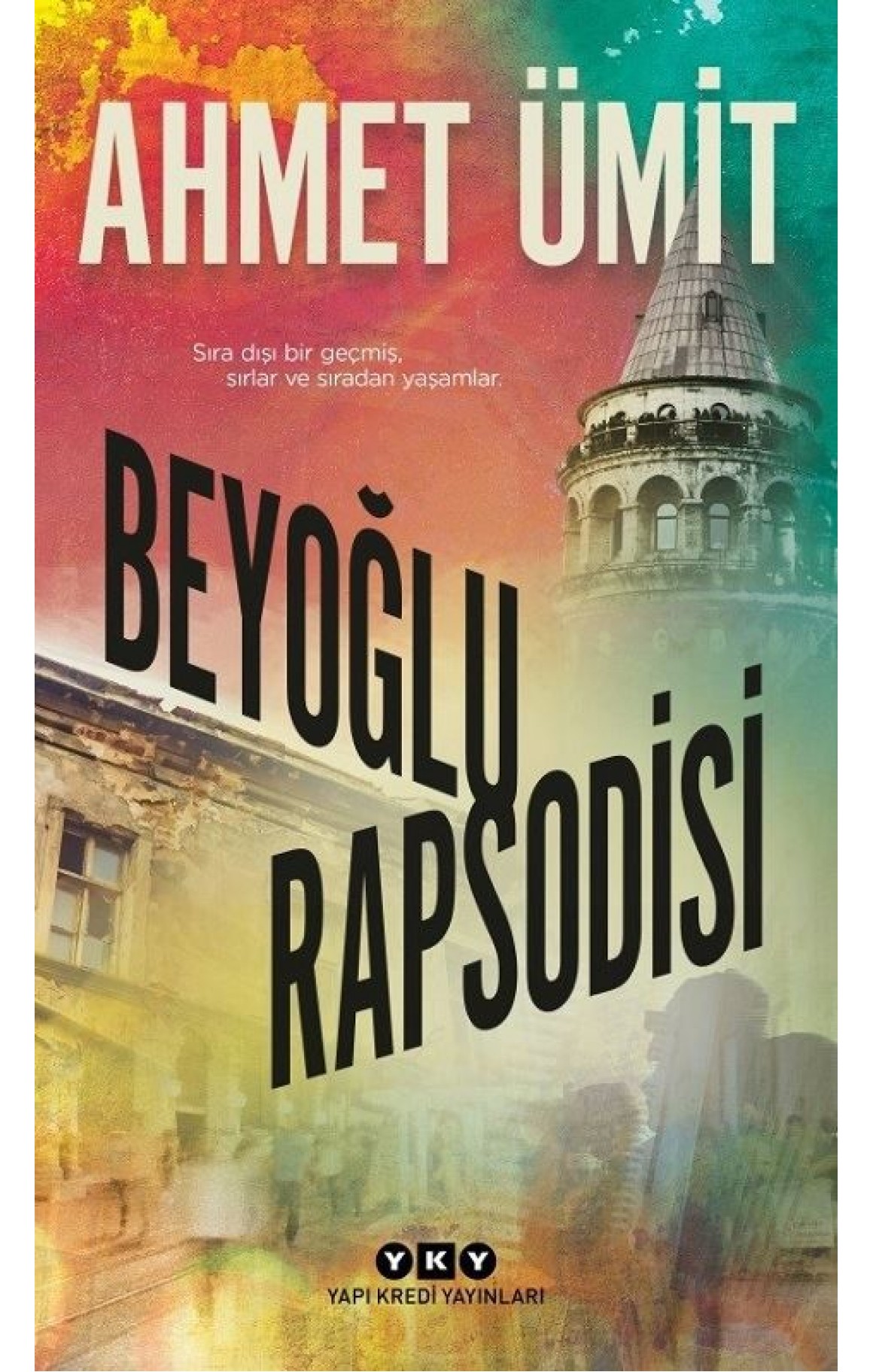Taking part in the 58th Library Week, Suna Kıraç; Library organized “Career Fair 2022” for the Information and Document Management students on Friday April 1, 2022. The event was conducted online and free-of-charge, and students from all universities were eligible to apply and participate. The participants were primarily undergraduate students who had the opportunity to attend the talks by twenty experts—who obtained degrees from the Department of Information and Document Management but followed different career paths. While they shared their diverse career experiences in different institutions, they all addressed the two key questions: What to do with a degree obtained from the Information and Document Management Department(s) and how to determine the right career path. While some speakers talked about pursuing an academic career (Zehra Taşkın), some other speakers shared their career experiences working as a museologist (Ayşe Bağırıcıoğlu) or marketing staff (Serdinç Kaya) in the private sector. This event could not be organized without the tremendous efforts of Serhat Uran, Onur Yılmaz, İrem Ünal, Sina Mater, Emrullah Can, and Tuba Akbaytürk. I am writing this brief reflection as an Academic Engagement Librarian, not as an organizer. This means that I will not talk about the event and/or the details of each session. My colleagues in the organizing team would undertake this task much better than I would. What I like to talk about is how this career fair can inform academia in developing ties between the students and the faculty beyond research.
As someone whose professional background is deeply rooted in academia, this type of event was entirely new for me. And to tell the truth, it was much more beneficial and productive than I had expected it to be. I previously participated in various international conferences, workshops, and meetings in the United States and Europe as a presenter and a listener. However, the Career Fair was fundamentally different in that participants were at the center of the event, not the presenters. Presenters knew or at least had an idea about what undergraduate students might need to know at this stage in their education life, and they shaped their talks accordingly. In other words, what they were concerned about was NOT their research or career but the backgrounds, careers, options, and choices of the audience. In academia, on the other hand, such meetings tend to spotlight the presenter(s), not the audience. Generally, these academic meetings are all about the presenter’s original contribution to their field, and the audience is usually shown little attention if at all. If you are a part of the audience and want to talk about your professional development as a young scholar, then you usually must run after the senior professors. You may exchange ideas for a few minutes only if you are lucky and if the professor did not still lose his/her enthusiasm to interact with a student constructively. If this interaction did not happen, you leave the meeting with what the presenters shared with you, which may not necessarily be the information you need. In that situation, your sole consolation is: “well, at least I networked.” You may now wait to reap its benefits in five years, or perhaps not.
I am aware that academic conferences and career fairs are two different types of events with two different formats. In theory, the former is designed for researchers (to receive constructive feedback and publicize research), whereas the latter is primarily designed for students. There will inevitably be occasions in academia where the presenter is at the center of the event. And that’s OK. But does there always have to be such a huge difference between academic and non-academic events? What if we start organizing professional development sessions in academia where the presenter’s primary purpose is to address junior scholars’ concerns and needs and to guide them through finding jobs within and beyond academia? Why do we put this burden on the shoulders of graduate students who encounter all sorts of difficulties in raising their needs, concerns, and questions due to the great power asymmetry between them and the faculty?
It is often assumed that graduate students know how to build a career in academia. Yes, they know the endpoint but sometimes lack the means to achieve it. This is especially true for doctoral students who spend years in their specific research topic and thus lose sight of various opportunities academic and non-academic worlds have to offer. What should be the next step in the grad school or after graduation? What difficulties are they likely to encounter in the job market and how to respond to those challenges? My point is not that they do not receive such advice; most students do—albeit from a very limited number of people and/or sources. Getting a professional development advice from multiple people affiliated with various domestic/international institutions would expand the graduate students’ horizons. Perhaps more importantly, it would circumvent the feeling of isolation, enabling graduate student to lay out more concrete future plans.
The Career Fair 2022 was an inspiring event for me in many ways, and I am sure it was even more so for the participants. My personal takeaway was that academia should also improve the channels of inner dialogue between the faculty, students, and various administrative/research units. Sharing research is one way of developing this dialogue, but certainly not the only one (and sometimes not the only effective one). Academia should do a better job of developing better communication platforms that go beyond research and focus on the graduate students’ professional development.
Dr. Burak Başaranlar
Academic Engagement Librarian



